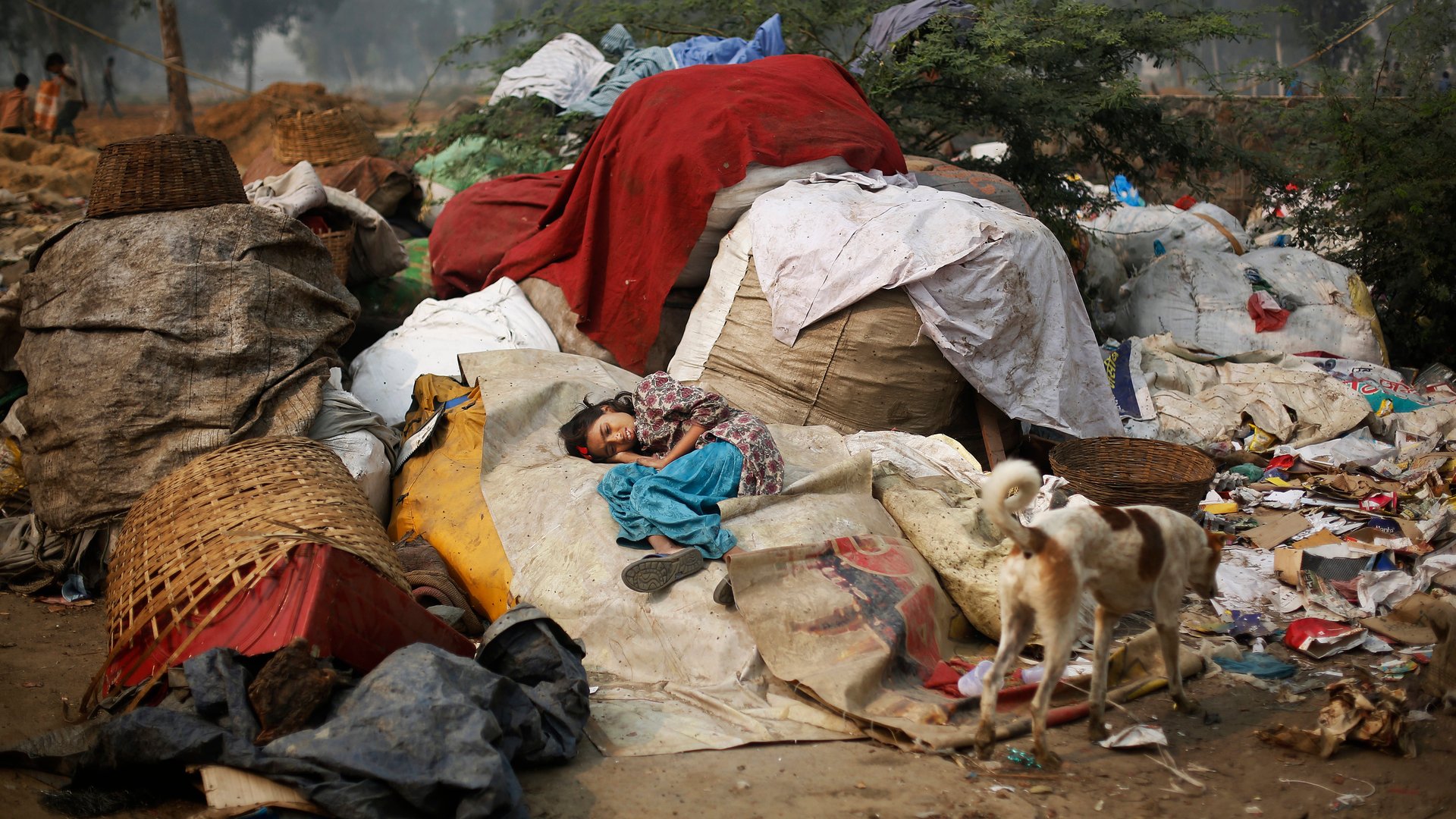Could a single billionaire lift an entire country out of poverty?
Global poverty has declined to a point where a single billionaire could put an end to it, in some countries. That’s according to a new blog post by Laurence Chandy, a fellow at the Brookings Institution who crunched the numbers just in time for Davos.


Global poverty has declined to a point where a single billionaire could put an end to it, in some countries. That’s according to a new blog post by Laurence Chandy, a fellow at the Brookings Institution who crunched the numbers just in time for Davos.
While Chandy stresses that there are many caveats, the results are provocative. Chandy’s analysis is based on a scenario where a large enough amount of money is redistributed to lift citizens above the poverty line for at least 15 years. That’s enough time, in theory, for them to develop means of sustaining themselves once the support ended. In three countries—Colombia, Georgia, and Swaziland—a single resident billionaire could meet that target. Six other countries could also achieve that goal if their billionaires all pooled their money.
This might all seem far-fetched, but some of the world’s richest people are already giving their money away.
Bill Gates’ club of Giving Pledge philanthropists have promised to donate their riches, and now number over 100. Separately, Mark Zuckerberg has promised to give away 99% of his wealth. Whether similar grand philanthropic gestures will take hold in poorer countries remains to be seen.
Assuming they do, there remains the question of how these funds could be effectively distributed to reach such lofty goals. That sounds like a perfect problem for the wealthy, globe-trotting attendees at Davos to solve, and Chandy directs his post at them. The first thing they will need to agree on is that their money could be a big part of the solution.